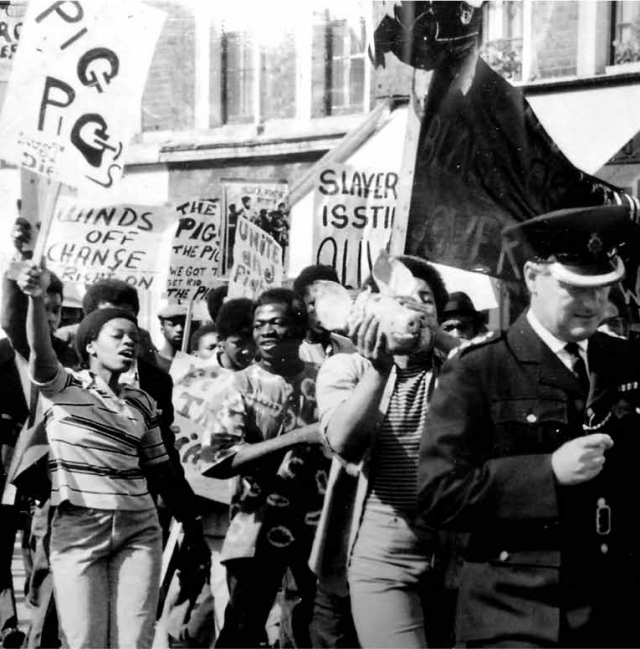The Black Leveller
Historian Article

Writing Darcus Howe: a political biography
History is rarely far removed from today's concerns. What is true of history in general is true of biography; specifically. Darcus Howe: a political biography is no exception. In writing it, we were consciously intervening in current debates about Britain and ‘race'.
The impetus to write emerged in 2008 during the American presidential election. Obama's likely victory led many pundits to question the extent to which the west had entered a ‘post-racial' age. The assumption in the mainstream British press seemed to be that Obama's imminent victory was some kind of turning point. There even seemed to be some reluctance to describe Obama as the ‘first black President', on the basis that such a description harked back to a bygone age in which people identified themselves in terms of black or white. It was in this context that Darcus Howe entered the debate. For Howe, Obama was part of a tradition of black American politics that stretched back through Stokely Carmichael and Martin Luther King, back to the Era of Reconstruction. To describe Obama as a ‘post racial President' was, for Howe, to miss the historical point.
The reaction to Obama's candidacy was part of a wider trend. A year earlier Britain had celebrated the bicentenary of the 1807 Abolition of the Slave Trade. The official coverage seemed to be a big national slap on the back: hadn't we done well to lead the way in human emancipation? Certainly, in 2006, Tony Blair had expressed ‘deep sorrow' for the slave trade - although his form of words was carefully crafted to avoid any implication that Britain should pay reparations. Statements by senior politicians reflected the ‘abolitionist myth', in which ‘ [t]he history of enslavement has been viewed backwards, through the history of its abolition, and that history in turn has been read not as a complex story involving slave resistance and economic causation . . . but as a story of heroic moral efforts of a mainly white, mainly male and mainly British abolitionist movement... '. David Cameron's recent pronouncements on abolition represent the apotheosis of this view, placing Britain squarely on the side of the angels at every decisive historical moment...
This resource is FREE for Student HA Members.
Non HA Members can get instant access for £2.49

